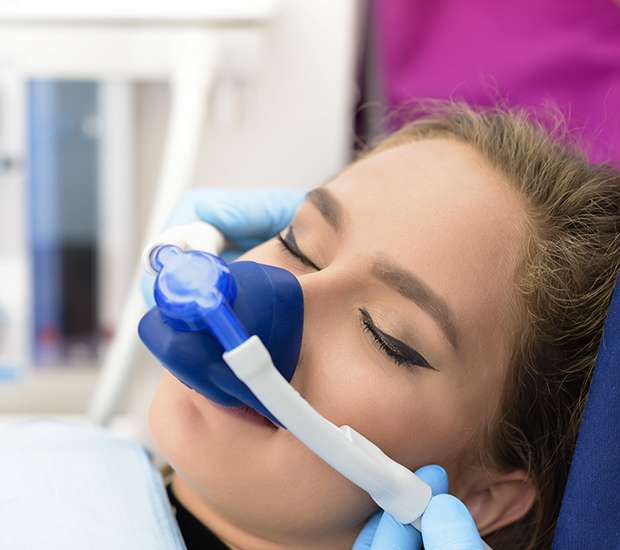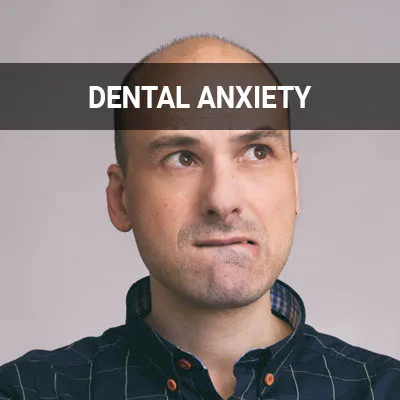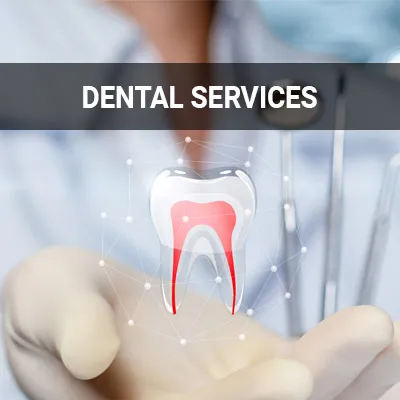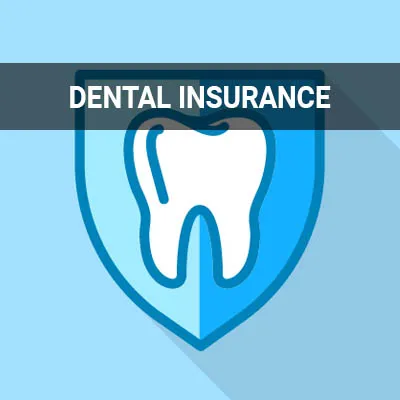Sedation Dentist Livermore, CA
Seeing a sedation dentist can help patients relax while receiving dental treatment. Sedation dentistry helps patients who have extreme dental-related fear or anxiety. If you avoid visiting the dentist because you are uneasy, sedation dentistry could be the solution for you.
A sedation dentist is available at Livermore Dental Spa in Livermore and the surrounding area. Our practitioners can help you determine if you are a good candidate for this type of dentistry. Call us today at (925) 344-3993 to learn more about our services or schedule an appointment.
When to See a Sedation Dentist
Visiting the dentist causes extreme worry in many patients, but they can often combat this stress by being sedated during dental procedures. A sedation dentist is trained to provide patients with medication that can relieve anxiety by making them feel drowsy and relaxed. The American Dental Association has strict guidelines in place to determine which of the following types of sedation is most suitable for individual patients.
- Minimal sedation: Nitrous oxide, commonly known as laughing gas, allows the patient to remain fully alert and aware of what is happening throughout the procedure. This medication commonly causes patients to feel relaxed and lightheaded. It is the most common form of sedation used in dentistry.
- Moderate sedation: Oral medication makes patients feel drowsy during their procedures. The effect of the medication may be strong enough to cause some patients to slur their speech and forget the procedure process. It must be taken an hour before the procedure begins.
- Deep sedation: Strong medication is administered through an IV. This allows the medicine to take effect more quickly and provides deeper sedation. Although most patients remain awake, they are extremely groggy and have little to no recollection of the procedure afterward. Some patients may fall into a light sleep but can be awakened easily once the dental procedure is complete.
“A sedation dentist is trained to provide patients with medication that can relieve anxiety by making them feel drowsy and relaxed.”
Treatments That Require Sedation
There are several types of medications potentially used in dental sedation. They can be given as a pill or administered intravenously. For minimal sedation, patients may receive gas inhaled through a mask. This type of sedation wears off quickly. The type of sedative used is determined by the patient's treatment, their tolerance, and conditions or illnesses they may have.
Local anesthesia is typically administered for minor restorative procedures such as cavity fillings, tooth extractions, root canal treatments, dental crown placement, and scaling and root planing. General anesthesia, usually inhaled or administered through an IV, is used for more severe procedures. It is commonly used for bone grafts, corrective jaw surgery, general tooth extractions, oral cancer surgery, sleep apnea surgery, cosmetic dental procedures, and cleft lip/palate surgery.
“The type of sedative used is determined by the patient’s treatment, their tolerance, and conditions or illnesses they may have.”
Receiving Sedation At the Dentist’s Office
A sedation dentist may provide various types of sedation, including minimal sedation, IV moderate sedation, and deep sedation. Common forms of minimal sedation include nitrous oxide inhalation or pills. Depending on the dosage, pills can also be used to produce moderate sedation.
Sedation dentists can also provide IV moderate sedation in the dental office. This involves administering sedatives through a vein to take effect quickly. Deep sedation will put patients asleep, so they do not experience any pain or discomfort during the procedure. However, this form of sedation requires at least three dental professionals to be in the room to monitor the patient.
“A sedation dentist may provide various types of sedation, including minimal sedation, IV moderate sedation, and deep sedation.”
Check out what others are saying about our dental services on Yelp: Sedation Dentist in Livermore, CA
How To Prepare for a Sedation Dentist
Patients should do extensive research and book a consultation before scheduling an appointment with a sedation dentist. While most dentists are certified to perform mild sedation, only certain practitioners who have completed the Commission on Dental Accreditation can administer deep sedation.
Patients should meet with potential dentists to determine which type of sedation is most suitable for their individual needs. The dentist will determine this based upon patients' ages and health in addition to the severity of their anxiety. After reviewing the possible risks associated with sedation dentistry, the patient should consider the dentist's experience and determine if sedation is right for them.
“Patients should do extensive research and book a consultation before scheduling an appointment with a sedation dentist.”
Questions Answered on This Page
Q. What types of dental procedures require sedation?
Q. When should I see a sedation dentist?
Q. How can I prepare for a sedation procedure?
Q. What are the benefits of sedation dentistry?
Q. When is sedation dentistry not possible?
People Also Ask
Q. How can I cope with dental anxiety?
Q. How often do I need to visit the dentist?
Q. Why do I need routine dental treatment?
Q. What happens at a dental checkup?
Q. What should I do if I chip a tooth?
Q. What should I know before beginning my search for a dentist?
When Sedation Dentistry is Not Possible
While sedation dentistry can help many people, it is not possible for everyone. Patients with certain conditions such as obesity or obstructive sleep apnea may not be able to receive this treatment due to the possibility of complications. Our dentist will speak with patients before providing sedation to ensure that it is safe.
This process will include reviewing a patient's health history and medications to determine whether they are a good candidate for sedation. It is crucial to receive sedation from a trained and qualified sedation dentist. Our team will work with each patient to determine their candidacy for sedation and ensure their safety.
“Patients with certain conditions such as obesity or obstructive sleep apnea may not be able to receive this treatment due to the possibility of complications.”
Frequently Asked Questions
Q. Is sedation dentistry safe?
A. Sedation dentistry is safe for many people. However, patients who have sleep apnea or are obese have a higher risk of complications from the medication. They should inform the dentist of their medical history so the practitioner can determine if sedation is the right solution.
Q. Who should see a sedation dentist?
A. Patients who experience severe anxiety over the thought of visiting the dentist should consider sedation dentistry. According to WebMD, this practice also benefits people with gag reflexes, sensitive teeth, or low pain tolerances. It may also be an option for those who have difficulty sitting still for extended periods or need a significant amount of work done.
Q. Why are sedation dentists beneficial?
A. Proper oral hygiene, including routine dental exams and cleanings, is essential for good oral health. However, many people have distress during dental procedures, causing them to avoid the dentist as often as possible. This leads to a decline in oral health and could lead to major problems in the future. A sedation dentist helps patients relax to undergo the cleanings and other procedures they need to maintain healthy teeth.
Q. Can children see a sedation dentist?
A. According to the American Academy of Pediatrics, dental sedation is safe for children. Many kids are uncooperative or scared while in the dentist's chair, and sedation makes them feel at ease throughout the procedure. Most children only need mild sedation.
Q. Is there a recovery period after being sedated for dental procedures?
A. Most patients will feel drowsy for a few hours after seeing a sedation dentist. If you have received mild sedation, you may be able to drive yourself home but should rest the remainder of the day. Patients who receive moderate to deep sedatives will need someone else to drive them home and may sleep for a few hours after the appointment. However, all patients can resume their normal lifestyles the day after the procedure.
Dental Terminology
Consult a Dentist About Sedation During Procedures
Sedation dentistry offers a way to get necessary dental care without fear or anxiety. Talk to a dentist about sedation options today. Call us at 925-344-3993 to schedule a visit.
Helpful Related Links
- American Dental Association (ADA). Glossary of Dental Clinical Terms. 2024
- American Academy of Cosmetic Dentistry® (AACD). Home Page. 2024
- WebMD. WebMD’s Oral Care Guide. 2024
About our business, license, and website security
- Livermore Dental Spa was established in 2023.
- We accept the following payment methods: American Express, Cash, Discover, MasterCard, and Visa
- We serve patients from the following counties: Alameda County, Contra Costa County and San Joaquin County
- We serve patients from the following cities: Livermore, Alameda, Pleasanton, Dublin, Ulmar, Tracy, San Ramon, Danville, Mountain House and Castro Valley
- CA (License #101519). View License Information and Specifics
- National Provider Identifier Database (1679095681). View NPI Registry Information
- Healthgrades. View Background Information and Reviews
- Norton Safe Web. View Details
- Trend Micro Site Safety Center. View Details
Back to top of Sedation Dentist











